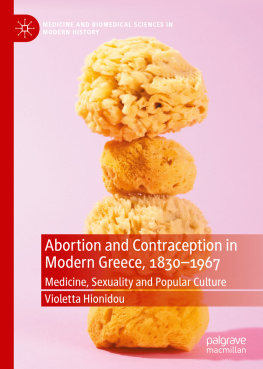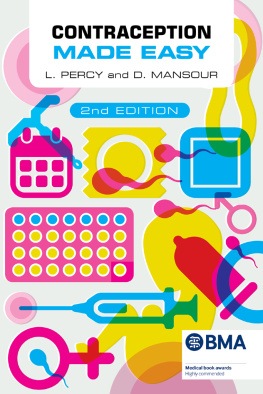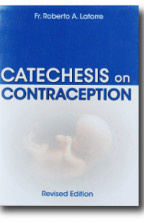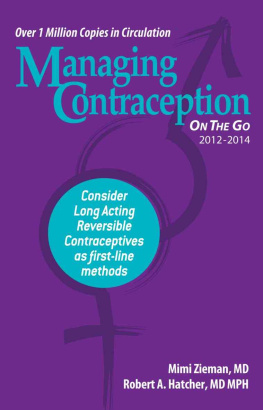Contraception Across Cultures
First published in 2000 by Berg Publishers
Published 2020 by Routledge
2 Park Square, Milton Park, Abingdon, Oxon OX14 4RN
605 Third Avenue, New York, NY 10017
Routledge is an imprint of the Taylor & Francis Group, an informa business
Andrew Russell, Elisa J. Sobo and Mary S. Thompson 2000
All rights reserved. No part of this book may be reprinted or reproduced or utilised in any form or by any electronic, mechanical, or other means, now known or hereafter invented, including photocopying and recording, or in any information storage or retrieval system, without permission in writing from the publishers.
Notice:
Product or corporate names may be trademarks or registered trademarks, and are used only for identification and explanation without intent to infringe.
Library of Congress Cataloging-in-Publication Data
A catalogue record for this book is available from the Library of Congress.
British Library Cataloguing-in-Publication Data
A catalogue record for this book is available from the British Library.
Typeset by JS Typesetting, Wellingborough, Northants.
ISBN 13: 978-1-8597-3381-3 (hbk)
Contents
Andrew Russell and Mary S. Thompson
Mary S. Willis and Marion Pratt
Joshua Levene
Amy Kaler
M. Catherine Maternowksa
Jennffer Phillips Davids
Rhoda Kanaaneh
Nancy Stark
Monika Krengel and Katarina Greifeld
Mary S. Thompson
Guide
The majority of chapters in this volume have been developed from papers originally presented at a two-day international conference Changing Contraceptives: Technologies, Choices and Constraints held at University College Stockton (since renamed University of Durham, Stockton Campus) from 1214 September 1996. Our thanks are due to the Mellon Foundation in New York, and the Overseas Development Administration (now the Department for International Development) and the Simon Population Trust in London, for their generous financial support for the conference, participants at the conference for their camaraderie and insightful comments, and to the staff at University College Stockton for their hospitality. We are particularly grateful to Shirley Ardener, founder and previous director of the Centre for Cross-Cultural Research on Women at Queen Elizabeth House, Oxford, and editor of the series of which this book is a part, for her enthusiasm and support both for the conference and this book. As reviewer for the series, Anne Coles gave very helpful comments on individual chapters, and contributors worked with diligence and commitment to complete their work within a tight timeframe. We would also like to express our thanks to Kathryn Earle and the staff at Berg Publishers for their advice and alacrity, and to members of the Centre for the Study of Contraceptive Issues and the Department of Anthropology at the University of Durham whose intellectual interest in this project has helped keep it on track. A number of employers are represented amongst the contributors to this book. However, the views expressed within it are those of the individuals concerned and do not necessarily reflect the opinions of their employers.
Royalties from the sale of this book will be shared between the Centre for Cross-Cultural Research on Women and the Centre for the Study of Contraceptive Issues.
Andrew Russell
Elisa J. Sobo
Mary S. Thompson
Jennifer Phillips Davids has a Ph.D. in anthropology and an MPH in international health from Emory University. Since 1993, she has conducted research among the Ethiopian immigrant community in Israel on reproductive decisions, fertility transition, and life course change. In addition, she has conducted research on teen pregnancy and perinatal outcome among African Americans in Atlanta, piloted methods for the field determination of reproductive status (among the Hadza in Tanzania), and examined the social context of interpersonal relationships among patients with Alzheimers disease. She is currently a visiting lecturer at Hebrew University, Jerusalem.
Katarina Greifeld has a Ph.D. in social anthropology (1984) and is an international health consultant and a medical social anthropologist. She works for different cooperation agencies all over the world, mainly in relation to target group issues in health and environment. She lectures at the University of Heidelberg and was recently assigned by the European Commission to expert panels in health, ethics and environment.
Amy Kaler has a Ph.D. in sociology and a minor in Feminist Studies from the University of Minnesota, awarded in 1998. She is presently a postdoctoral fellow at the Population Studies Center at the University of Pennsylvania, where she is working on several research projects concerning culture, gender and reproductive technologies in southern and eastern Africa.
Rhoda Kanaaneh received her Ph.D. in anthropology from Columbia University in 1998. She is Assistant Prof. of Womens Studies at New York University. Her forthcoming book on nationalism, globalization, medicalization, gender and reproduction among Palestinians is entitled The Reproductive Measure: Negotiating Babies and Boundaries in the Galilee, to be published by University of California Press.
Monika Krengel has a diploma in sociology and received her Ph.D. in social anthropology from Heidelberg University in 1988. She currently holds the position of a research fellow at the South Asia Institute in Heidelberg, conducting research in the Central Himalayas (India) on a project entitled Customs, Law and Moralities. She also works as an international health consultant. She has been teaching at Heidelberg and Frankfurt (Main) Universities and conducts research in environment, gender and health-related projects.
Joshua Levene was a student on the Human Sciences degree course at University College Stockton (now renamed University of Durham, Stockton Campus) when he first went to Tonga under the auspices of the Overseas Training Programme run by Voluntary Service Overseas. He has subsequently returned to the South Pacific as a consultant for the World Bank, and has conducted other participatory action research projects amongst intravenous drug-users in the UK.
M. Catherine Maternowska has a Ph.D. in medical anthropology from Columbia University (1996). Her involvement with Haiti dates from 1984. She has also worked as an international health consultant in Tunisia, Jordan and, most recently, Mali, incorporating gender-based strategies into reproductive health programmes. In 1993 she helped found, and is now Executive Director to, the Lambi Fund of Haiti. This non-profit alternative development organization works to sustain Haitis popular democratic movement. She also holds a faculty position in the School of Public Health and Tropical Medicine at Tulane University/Arkansas Campus.
Marion Pratt, who earned a doctorate in sociocultural anthropology from Binghamton University in 1995, currently holds the position of Social Science Advisor for the U.S. Office of Foreign Disaster Assistance (OFDA). At OFDA she focuses on the cultural, environmental and gender contexts of disasters in Africa and Asia.
Andrew Russell












